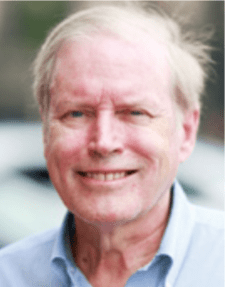The Canadian Idea
From the Editor / L. Ian MacDonald
Welcome to our special summer issue on The Canadian Idea. The American idea, abolitionist preacher Theodore Parker declared in 1850, comprised three elements: that all people are created equal, that all possess unalienable rights, and that all should have the opportunity to develop and enjoy those rights. There has never been a comparable articulation of the Canadian Idea, so for our Policy Magazine Summer Special: The Canadian Idea, we’ve asked an outstanding group of contributors for their sense of what Canada represents.
And there’s a strong consensus that the idea of Canada is partly rooted in its geography and also in its status as a nation of immigrants, one whose national narrative has evolved from tolerance to inclusiveness.
As Peter Mansbridge, himself an immigrant from post-war Britain, writes: “The country has changed a lot in the sixty-five years since I walked down that gangway, not much more than a toddler, and I’ve witnessed Canada change and grow and mature.” He concludes that Canada is a country of imperfections “and it’s time we dealt with it.”
As a reporter and author on Quebec, and for a decade as Commissioner of Official Languages in Ottawa, Graham Fraser has long seen the country through the lens of language. In the Canadian experience, he writes that “the longest history and the deepest fault line has been that of language.”
Pollster Shachi Kurl, executive director of the Angus Reid Institute in Vancouver, considers the attitude of Canadians towards first-generation born Canadians of immigrant parents. She is one herself, her parents having immigrated from India. Her firm found that two-thirds of Canadians think of irregular border crossings as “a crisis”.
Elizabeth May has a favourite way of seeing the country and talking to voters—on the train. As Green Party Leader, half her life is spent traveling back and forth across the country. “Honestly,” she writes, “I do not think that anyone who has not seen the country by rail—or at least by leisurely road trip—can claim to have seen it at all.”
Vianne Timmons grew up as one of six children in Labrador. She and her five siblings became the first generation of their working-class family to attend university. Vianne has served for more than a decade as President of University of Regina. She’s a champion of Indigenous empowerment and inclusion in the halls of academic and political power. “I still believe,” she writes, “that one of those little girls I have seen in Rankin Inlet can be our prime minister some day.”
Sarah Goldfeder, now an Ottawa-based consultant, spent some 10 years with the U.S. State Department and stayed in Canada after her last posting. “When Americans ask me how I find living in Canada, it’s a hard question,” she notes. “I chose Canada but I love my country.”
Canada has two constitutional frameworks—the federal-provincial bargain and division of powers in the British North America Act of 1867, and the rights of Canadians as individuals articulated in the Charter of Rights and Freedoms of 1982.
Tom Axworthy knows a lot about the Charter; it happened on his watch as principal secretary to Prime Minister Pierre Trudeau from 1981-84. He writes that without Canada coming of age as a federation under the BNA Act, there would have been no Charter.
For her part, Lori Turnbull sees Canada’s constitution as unique in its design in that it has both written and unwritten parts, reflecting the influence of the American and British constitutions respectively.
Don Johnston, former Liberal cabinet minister and Secretary General of the Organisation for Economic Cooperation and Development, writes that trying to describe the Canadian idea can be like the proverb about a blind man describing an elephant: “Many of us have impressions of particular regions, cities and people, but very few know it in much detail from sea to sea to sea.”
After a career as an advocate for Nova Scotia’s Black community and warrior against racism, Wanda Thomas Bernard became a Senator in 2016. “Despite being historically perceived as a ‘Promised Land’ and 185 years after emancipation,” she writes, “people of African descent still do not have equitable access to opportunity in Canada.”
Jeremy Kinsman has served Canada at home and abroad, as ambassador to Russia, the U.K. and EU. He considers how the world view of Canada has evolved in politics and culture, to a country that no longer passes unnoticed.
Finally, as Canadians approach a general election, they’re seeing a lot of the tumult and turmoil of federal-provincial relations. Columnist Don Newman considers it, and concludes it’s all in the Canadian nature of things.
Enjoy.

